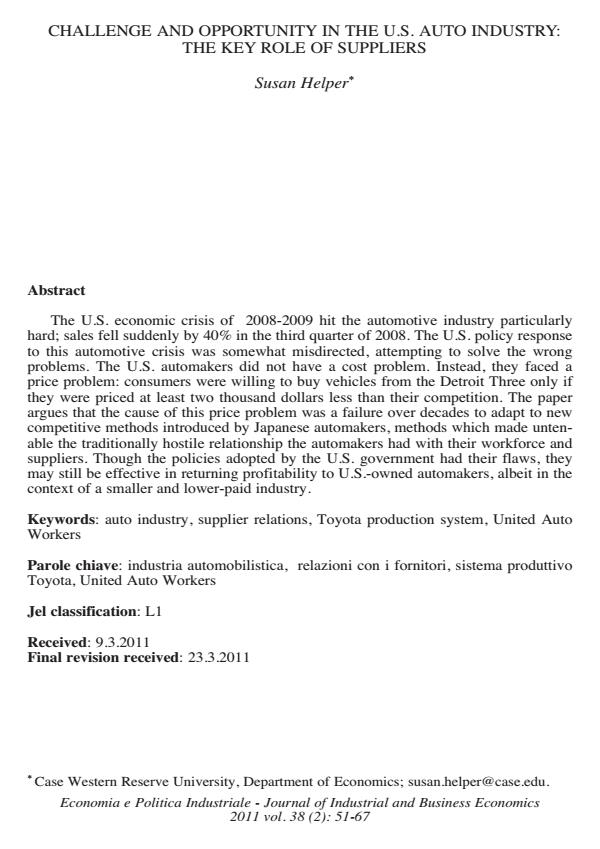Challenge and opportunity in the U.S. auto industry: the key role of suppliers
Journal title ECONOMIA E POLITICA INDUSTRIALE
Author/s Susan Helper
Publishing Year 2011 Issue 2011/2
Language English Pages 18 P. 51-68 File size 109 KB
DOI 10.3280/POLI2011-002003
DOI is like a bar code for intellectual property: to have more infomation
click here
Below, you can see the article first page
If you want to buy this article in PDF format, you can do it, following the instructions to buy download credits

FrancoAngeli is member of Publishers International Linking Association, Inc (PILA), a not-for-profit association which run the CrossRef service enabling links to and from online scholarly content.
The U.S. economic crisis of 2008-2009 hit the automotive industry particularly hard; sales fell suddenly by 40% in the third quarter of 2008. The U.S. policy response to this automotive crisis was somewhat misdirected, attempting to solve the wrong problems. The U.S. automakers did not have a cost problem. Instead, they faced a price problem: consumers were willing to buy vehicles from the Detroit Three only if they were priced at least two thousand dollars less than their competition. The paper argues that the cause of this price problem was a failure over decades to adapt to new competitive methods introduced by Japanese automakers, methods which made untenable the traditionally hostile relationship the automakers had with their workforce and suppliers. Though the policies adopted by the U.S. government had their flaws, they may still be effective in returning profitability to U.S.-owned automakers, albeit in the context of a smaller and lower-paid industry.
Keywords: Auto industry, supplier relations, Toyota production system, United Auto Workers
Susan Helper, Challenge and opportunity in the U.S. auto industry: the key role of suppliers in "ECONOMIA E POLITICA INDUSTRIALE " 2/2011, pp 51-68, DOI: 10.3280/POLI2011-002003